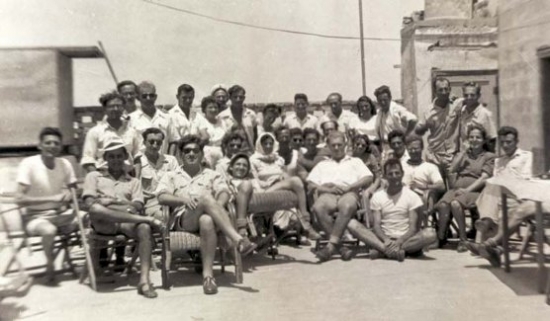
Gathered for the general meeting on the roof of the house.
In April 1949 our unit was disbanded. All of us who were remaining in Israel prepared to make our way to our home in Sheik Munis. Our unit had set up a provisional committee, Eliezer Singer, Dave Singer and me (Joseph Shlain) to prepare the ground for the establishment of a building and agricultural cooperative.
The goal was the establishment of a settlement based upon cooperative principles and self labor. The settlement would be a place which could absorb aliya from Anglo-Saxon countries and would serve as a focus of life in Israel for the Jewish communities in those countries. Two main economic spheres, which were also to be made spheres of development in Israel, were aimed at - building and agriculture. In the initial stages there would be two groups on hachshara and the fusion of the two would take place when the entire group would be on hityashvut.
We moved into our beth hachshara and held our general meetings regularly. Following are just a very few of the decisions which were made which make interesting reading in that they reflect the situation at the time.
June 6, 1949
We would receive a group ration card. This could only be had when details as asked for from each member were handed in.
To be registered at the kupat cholim it is necessary for each person to have an identity card. It would probably take ten days before we could obtain these.
No bigger tents were available for the families but we are applying for more tents. If no more were forthcoming it may be possible to put up hessian screens around the area of the tent to make more room.
We are going to ask once more for the water to be fixed. If nothing is done about this then we will go to the higher authority, Gurion.
Pocket money depends on whether we can afford it. At present we are spending more than we are earning.
October 26, 1949
Economy should be exercised in use of electricity. Bill for five months was 60 pounds.
Muriel said that although meals were better cooked and nicely prepared, food was insufficient in quantity.
Shefayim were prepared to help us and Bolly and Harry had been sent there for tractor and lull (chicken house).
Pregnant and nursing women
The group is faced with the question of two children being born in the very near future and the opinion of chaverim was asked for on a general policy to be adopted. The custom on a moshav was for the expectant mother to be free from work entirely for two weeks before the birth and for six weeks after. The budget for clothing was 20 pounds for the initial outlay and the clothes were communal. There could be an individual budget for each child.
December 12, 1949
In view of the fact that the milk used was not pasteurized, the serving of milk to chaverim on their return from work would stop, and in future milk would only be used in hot drinks. This caution was for obvious health reasons.
January 28, 1950
Maskiroot suggested that chaverim working out take it in turn with chaverim in house to have hot showers on alternate days, for example, Sunday, Tuesday and Thursday for chaverim working outside. Agreed this be left to the discretion of chaverim.
A month's supply of sugar had been used up in 10 days. Chaverim were asked to go carefully on this.
May 8, 1950
Chofesh nissuim suggested that allowances of 5 lira be granted for 4 days.
June 3, 1950
Discussion of bachurot
The details are too lengthy to print in full. Sufficient to say thatintensiveefforts were made to attract additional females to the group.
October 21, 1950.
Josie gives a brief report regarding hityashvut during the past. Josie went especially to Jerusalem to see Haartsfeldt. As usual it was very difficult to get hold of him and the very brief interview was not very helpful. However, Josie started to follow other prospects and to make enquiries.
How did we live?
A few of our members were employed in the archeological excavation site of Tel Kassila. For more information refer to issue No.1, Volume 1, August 1949 in the magazine "Pioneer". On the cover of the magazine is my school mate, the young Freddy Salant, doing his best to provide us with some income. Incidentally, our 50th anniversary was celebrated on the same grounds, today the Haaretz Museum.
One day, as I returned from my missions I found the ladies planning the kitchen. Where did it come from? All built in one day. I was advised, as representative/treasurer, not to enquire too much. The kitchen not only supplied our meals, it brought us in much needed extra income, as we supplied meals to those in charge of the archeological dig.
Did I say some of our ladies? Initially there were not any. We were all ex-Mahalniks. It did not take long however for many new English speaking immigrants to hear about Beth Chever and to join us. Fortunately, quite a few of them were females. Nehama, a Canadian from kibbutz Hazor met and married Les, our secretary from Wales. We even had immigrants who had escaped from Europe through China. Two of these special girls, Shoshana and Gail, married two of our Mahalniks Joe, from Canada, and Dave from South Africa. Our ex-sergeant major, Hone, informed his girl friend Rose, in South Africa, that he would only marry her if she joined him in Israel in Beth Chever. My school mate Freddy met Muriel, this gorgeous young girl from England, and wasted no time in the chiming of wedding bells. The entire families of all those mentioned, children and grandchildren, are all full blooded Israelis living in Israel, whether in the center, north or south. There were others not mentioned but I would need a book, not a magazine, to record all the tales.
What were all the rest of us to do? No problem. We discovered that the building across the river Yarkon in Tel Aviv was the home of the nurses’ training centre.
On a personal note -When Bolly Malin, an ex-paratrooper, took his mahal leave, I sent regards to my family in South Africa. He became my brother in law, marrying my sister, Sheila.
Esra recently celebrated its 30th anniversary in Kibbutz Shefayim. 60 years ago Shefayim was our nearest agricultural settlement. Some of our members trained there. Not having any spare vehicles, our trainees made their way back and forth by hitching lifts.
As recorded in the minutes, we entered the building trade. Today we need to import workers for that purpose. We were proud to help build Israel. It did not matter if you were a tradesman or if you had a university degree. Many of our members trained in Solel Boneh to become experts in the building trade.
Did I say we were destined to be an agricultural settlement? Why not use the grounds we had? But we needed to plough the soil. Fortunately, I had an uncle who owned a horse and a cart. It was brought to us and the horse pulled the plough. Now we had to return the horse and cart. To this day I tremble as I recall traveling through the main roadsof Ramat Gan and Petach Tikva, with me the experienced
horseman (!) guiding the wagon.
Yet more was to come. One day as I returned from my missions I was greeted with great excitement by Les, our secretary. He hadn't even waited for my opinion as treasurer. A road was to be built in front of our dwelling. As compensation we were being offered 500 Israeli lira for our vegetable crops. Actually, we earned even more. By the time the road was built we had reaped our crops. Today you travel in traffic jams on Rokach Boulevard (our vegetable garden) passing the fairgrounds of Ganei Hataarucha.
The major highway to the north, the coastal road was opened while we were living at the junction. Our joker, Moshe Posner, with his ping pong ball tricks, attracted more attention than our minister Golda Meir.
Our nearest transport was the terminus of the No 4 bus at the end of Ben Yehuda Street. Quite a walk to our residence. The terrific advantage was that we could enjoy the banks of the river Yarkon, whether for amidday walk or a courting expedition in the evening. We also enjoyed the voice of Yaffa Yarkoni from the club across the river.
There wasn't too much noise as there was only a small wooden bridge across the river-room for no more than one vehicle at a time.
At one stage I spoke of antiquities. I still have a recording of the very first English speaking program overseas. The interviewed participants were members of Beth Chever.
Despite the years that have gone by, I cannot pass this major junction without a sense of emotion. We spent only two years there, but they are years that can never ever be forgotten. It is with a sense of pride that we can look back on this brief period, realizing how many new immigrants found this house in Sheik Munison the banks of the river Yarkon as their first home in Israel.
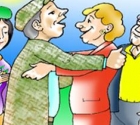 The Bereavement & Loss Program
The Bereavement & Loss Program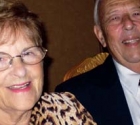 Thank You Eddie
Thank You Eddie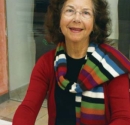 Save One Life, Save A World
Save One Life, Save A World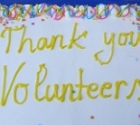 A new website in English - on Volunteering - Launched in Israel
A new website in English - on Volunteering - Launched in Israel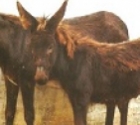 Help Needed for Abused Horses and Donkeys
Help Needed for Abused Horses and Donkeys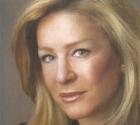 Heather's Heseg
Heather's Heseg